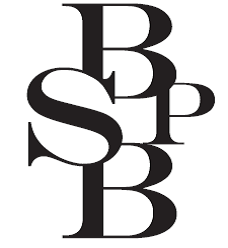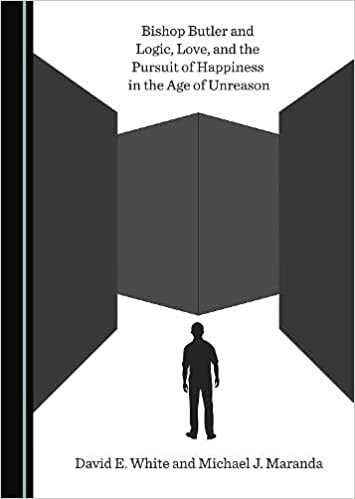|
Bishop Butler and Logic, Love, and the Pursuit of Happiness in the Age of Unreason by David E White and Michael J. Maranda, with a foreword by Rt. Rev. Dr. Prince G. Singh, has been published by Cambridge Scholars Publishing, 2021. For more information or to order: https://www.cambridgescholars.com/product/978-1-5275-7388-8 This book introduces readers to Butler’s philosophy as a whole and to the primary texts in his own words. Butler was an advocate for and consistently defended the Church of England and its associated morality and theology in all his works. He insisted on the necessity of having good reasons to support any belief or practice toward which one was attracted. Using ordinary language and appealing to the acknowledged facts of experience, Bishop Butler presented a guidebook on how to live in pursuit of happiness and the benefit of all. What was your aim in writing this book? DEW: Michael and I wanted to present Butler’s ideas not because we expect anyone today to share all of Butler’s views, but because of their fit with the full range of theistic piety and with the varieties of ethical atheism. The imposition of dogma and the exposition of bias are discarded as distractive from the search for truth. Even those who reject the whole drift of Butler’s thought, like John Dewey, can still admire his courage in relying on probabilities rather than dreaming the impossible dream of certainty. What was your inspiration for writing on Bishop Butler? DEW: I first read Butler fifty years ago. What I learned from Butler was not so much what to think about God, freedom, and immortality but how to think about the practical implications. I had been inspired by Dewey to search for a common faith and to make it explicit and militant. What does your book do differently? DEW: We have tried to find the middle course between the high, dry, and academic theorizing about ethics and religion and the popular, mindless, and often fanatical practices that have become common. We try to set out the premises, the facts in evidence, and let readers draw their own conclusions. We have not succeeded in the elimination of bias, but we have tried. What new insights has the book revealed? DEW: The life, sources, works, distribution, and reception of Bishop Butler can serve as a bridge, or navigational aid, joining the wisdom of the ancients, sacred and secular, with our experience as moderns and with our expectations for future generations. Since Butler insists on grounding his views in evidence and argumentation, his appeal extends well beyond the Anglican Communion. Butler’s clarity of expression and cogency of argumentation free him from the bias associated with philosophical and religious thought. His work remains critical of, and receptive to, a wide range of ways to carry on the business of living a human life without falling into the kind of error and distraction most likely to lead to misery.
Comments are closed.
|
AuthorWrite something about yourself. No need to be fancy, just an overview. ArchivesCategories |
||||||


 RSS Feed
RSS Feed
